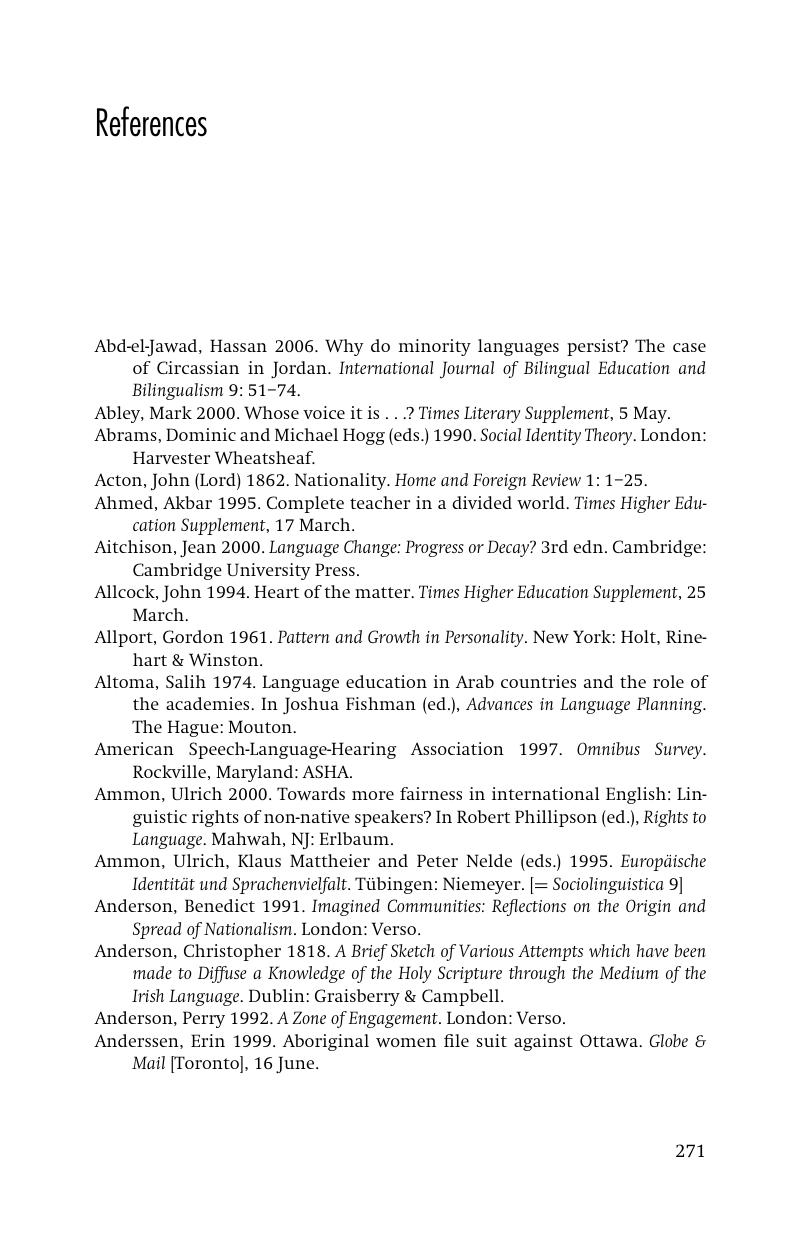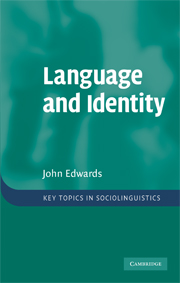Book contents
- Frontmatter
- Contents
- 1 Introduction
- 2 Identity, the individual and the group
- 3 Identifying ourselves
- 4 Language, dialect and identity
- 5 Dialect and identity: beyond standard and nonstandard
- 6 Language, religion and identity
- 7 Language, gender and identity
- 8 Ethnicity and nationalism
- 9 Assessments of nationalism
- 10 Language and nationalism
- 11 Language planning and language ecology
- Glossary
- Notes
- References
- Index
- References
References
Published online by Cambridge University Press: 05 June 2012
- Frontmatter
- Contents
- 1 Introduction
- 2 Identity, the individual and the group
- 3 Identifying ourselves
- 4 Language, dialect and identity
- 5 Dialect and identity: beyond standard and nonstandard
- 6 Language, religion and identity
- 7 Language, gender and identity
- 8 Ethnicity and nationalism
- 9 Assessments of nationalism
- 10 Language and nationalism
- 11 Language planning and language ecology
- Glossary
- Notes
- References
- Index
- References
Summary

- Type
- Chapter
- Information
- Language and IdentityAn introduction, pp. 271 - 309Publisher: Cambridge University PressPrint publication year: 2009

